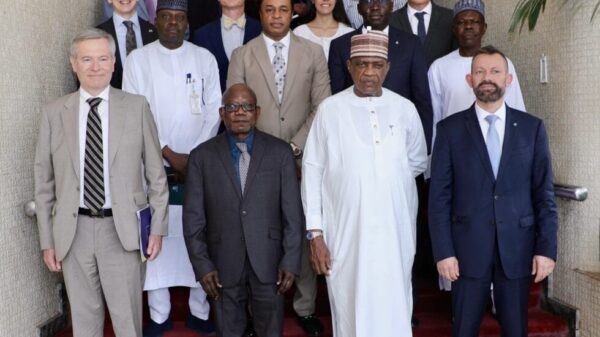Dr Natalia Kanem, the Executive Director, United Nations Development Fund (UNFPA), says since 2000, the world has witnessed a remarkable 40 per cent drop in global maternal mortality.
She disclosed this in a statement issued on Monday on the occasion of World Health Day 2025, celebrated globally on April 7.
The World Health Day is a global health awareness day celebrated under the sponsorship of the World Health Organisation (WHO) and other related organisations.
The year-long campaign on maternal and newborn health is titled “Healthy Beginnings, Hopeful Futures”.
It is expected to urge governments and the health community to ramp up efforts to end preventable maternal and newborn deaths, and to prioritise women’s longer-term health and well-being.
Kanem said that for the first time, no country was estimated to have an ‘extremely high’ maternal mortality rate of more than 1,000 deaths per 100,000 live births.
“Globally, women’s health during pregnancy and childbirth is better than ever before.
“This is owing to medical advances, and because more women have control over their reproductive choices and can access respectful, high-quality maternal care.”
She, however, noted that the gains masked significant disparities, remaining fragile and, in some of the most vulnerable areas, non-existent.
Kanem stated that in areas where health systems are weak or protracted crises take root, maternal mortality rates stagnate or even increase.
“In conflict-affected countries, women are twice as likely or more to die from pregnancy and childbirth complications than the global average.
“One encouraging sign is that more births today take place in healthcare facilities. Still, the quality of care varies widely, which can have life-threatening consequences.
“Research finds that poor-quality care causes half of maternal deaths and shortages in essential medicines, equipment and skilled personnel plague many health systems.”
She noted that in many cases, discrimination and inequities tied to location, income, and race or ethnicity deprived women of both sexual and reproductive choices and adequate maternal care.
According to her, even in the wealthiest countries, which have high healthcare standards on average, rates of maternal mortality are disproportionately higher among marginalised groups.
“We can and must end preventable maternal deaths. We know what works and why.
“We know that midwives save lives. Expanded midwifery care can detect risks and manage complications while reducing costs.”
She, however, said that in spite of evidence that universal access to these professionals could avert two thirds of maternal and newborn deaths and stillbirths, there was a global shortfall of nearly one million midwives.
Kanem called for strong political commitments, adequate financial resources and supportive laws that would make a lasting difference.
“On this World Health Day, let us prioritise investments so that we reach zero preventable maternal deaths.
“Let us commit to building healthier, more just societies and to ensuring that all women bringing life into this world can survive childbirth and thrive afterwards.”




























